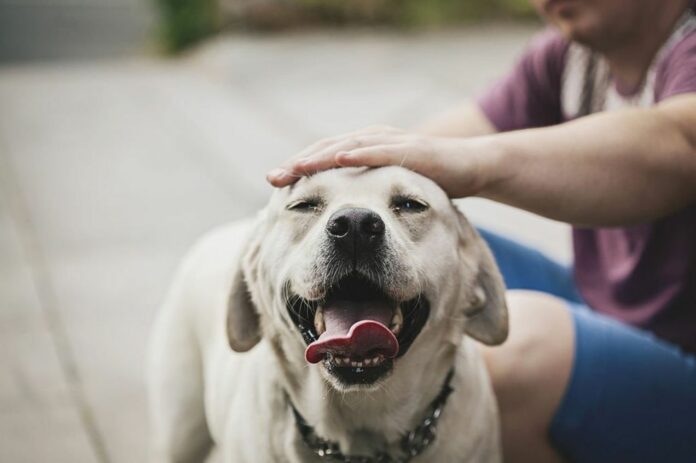Petting dogs appears to stimulate a portion of our brain that helps regulate and process social and emotional connections.
Researchers at the University of Basel in Switzerland, led by Rahel Marti, found that seeing, feeling, and touching real dogs makes the prefrontal cortex of the brain more and more active.
The study, which was published today in the journal PLOS ONE, shows that this effect lasts even when the dogs are not there. However, this effect is less strong when real dogs are replaced with stuffed animals.
The results have implications for clinical therapy with the help of animals.
Because engaging with animals, especially dogs, is known to help individuals cope with stress and depression, researchers believe that a greater understanding of the related brain activity could assist therapists in designing more effective animal-assisted therapy systems.
Given its central role in regulating and processing both social and emotional interactions, the prefrontal cortex may be of particular relevance.
The study used infrared neuroimaging technology to monitor activity in the prefrontal cortex of the brain as 19 men and women saw a dog, reclined with the same dog against their legs, or touched the dog.
Each of these settings was also tested on Leo, a stuffed lion with fur that was filled with a water bottle to match the dogs’ temperature and weight.
Results showed that interaction with the real dogs increased prefrontal brain activity, and that this difference was greatest during petting, which was the most engaging condition.
The fact that prefrontal brain activity increased each time they engaged with the real dog was another significant distinction.
This was not detected in subsequent contacts with the stuffed lion, implying that the response was due to familiarity or social bonding.
Future research is required to study the problem of familiarity in greater depth and to see whether petting animals might induce a similar increase in prefrontal brain activity in patients with socioemotional impairments.
“The present study demonstrates that prefrontal brain activity in healthy subjects increased with a rise in interactional closeness with a dog or a plush animal,” write the authors, “but especially in contact with the dog the activation is stronger.
“This indicates,” according to them,” that interactions with a dog might activate more attentional processes and elicit stronger emotional arousal than comparable nonliving stimuli.”
Source: 10.1371/journal.pone.0274833
Image Credit: Getty
You were reading: New Trial Reveals What Petting Dogs Does To The Human Brain
